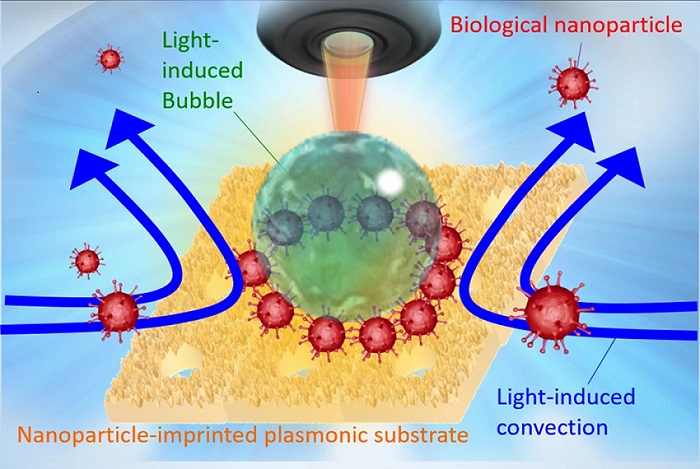Light-Induced Immunoassay Selectively Detects Coronavirus Spike Proteins In 5 Minutes
Posted on 19 Sep 2024
Like moths drawn to a flame, microbes can also be influenced by light. Using this principle, researchers have developed a method to quickly detect viruses using only a small sample.
Scientists at Osaka Metropolitan University's Research Institute for Light-induced Acceleration System (RILACS) have developed a light-induced immunoassay for virus detection. By applying laser irradiation for less than a minute, they used a nanoparticle-imprinted plasmonic substrate with nanobowl structures (each 500 nm in diameter) coated with antibodies for the spike proteins of the novel coronavirus. A low-power 5-milliwatt laser, similar to commercial laser pointers, was able to form bubbles on the biochip that attracted virus-mimicking nanoparticles, speeding up the selective detection of these particles.

The process works because light-induced convection causes the nanoparticles to move and gather at a stagnant region between the substrate surface and the bottom of the bubble, meaning a high particle concentration isn't necessary. The entire procedure—from coating the substrate to detecting the virus—can be completed in under 5 minutes, as reported in the journal npj Biosensing.
“This study shows that we can shorten the cumbersome antibody coating process and perform rapid and highly sensitive protein detection,” said OMU Professor Takuya Iida, the director of RILACS. “We believe our findings can contribute to the early diagnosis of not only the novel coronavirus, but possibly also various infectious diseases, cancer, even dementia.”
Related Links:
RILACS














